Acclaim for TONY HORWITZ s
Confederates in the Attic
The freshest book about divisiveness in America that I have read in some time.
The New York Times
Horwitzs economical style and understated humor make his writing a joy to read. He is the kind of writer who could make a book on elevators interesting.
The Philadelphia Inquirer
Part travelogue, part social study, part 90s war epic, Confederates in the Attic is a personal, penetrating glimpse at a slice of America many of us didnt know existed or would rather believe did not.
The Boston Globe
The South rises again in this remarkable study.
People
Essential reading for anyone who really cares about Americas political and social conflicts. You will find Tony Horwitzs captivating narrative irresistible.
Louisville Courier-Journal
One of the most important studies of the American South in recent memory.
The Oregonian (Portland)
A deadpan guide to Dixie kinks and a dead-on analysis of the shifting ideological landscape. Riding shotgun with him is a treat.
Newsday
A remarkably balanced, bittersweet, eye-opening tour through a part of America most Northerners are utterly unaware of.
Chicago Sun-Times
A work of American history like no other. A profound investigation not just of the American past but also of the American present.
Preservation Magazine
Outstanding journalism, artfully constructed and unfailingly vivid, as good a rendering as Ive seen of the mysterious pull at the heart of the American identity.
Slate
Hilarious and engaging, troubling and insightful, entertaining and eminently readable.
Charleston Post-Dispatch
Jampacked with wonderful stuff.
Chicago Tribune
The mystique of Southern attitudes about the War of Northern Aggression is explored in a way never done before. Horwitzs book is simply excellent. Put this one high on your nonfiction list.
Arkansas Democrat-Gazette
Its like having your brightest, most observant friend around, the one whose descriptive powers always crack you up.
The Hartford Courant
Excellent and amazing. Horwitz managed to get inside the Souths impossibly thick skull and have a long, unsettling look around.
Mobile Register
Horwitz is a terrific storyteller, a writer with a wonderful ear for language and a sharp eye for nuance. Reading him is a delight.
LA Weekly
Truly delightful. His narrative is personal and searching, tender and funny.
The Orlando Sentinel
Humorous, tragic, thoughtful, frightening, but always entertaining.
The Seattle Times
This Southern-fried odyssey has enough oddball and occasionally dangerous characters to fill a Flannery OConnor novel.
The San Diego Union-Tribune
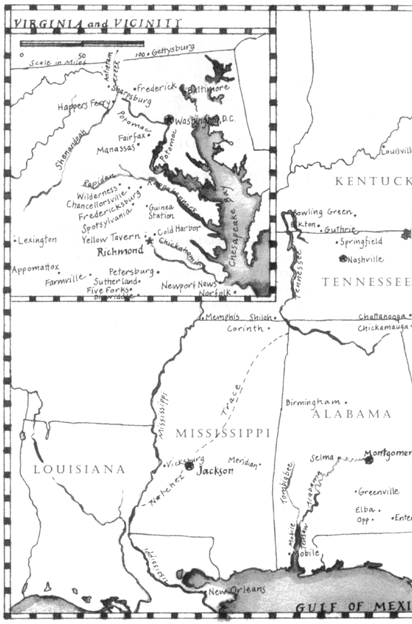
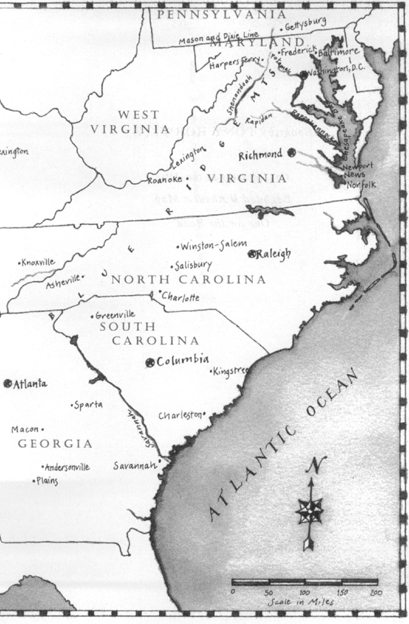
 FIRST VINTAGE DEPARTURES EDITION, MARCH 1999
FIRST VINTAGE DEPARTURES EDITION, MARCH 1999
Copyright 1998 by Tony Horwitz
Maps Copyright 1998 by Laurie Jo Neary/Seed Time Studio
All rights reserved under International and Pan-American Copyright Conventions Published in the United States by Vintage Books, a division of Random House, Inc., New York, and simultaneously in Canada by Random House of Canada Limited, Toronto. Originally published in hardcover in the United States by Pantheon Books, a division of Random House, Inc., New York, in 1998.
of this work was originally published in a different form in The New Yorker.
Grateful acknowledgment is made to Random House, Inc., for permission to reprint an excerpt from Intruder in the Dust by William Faulkner. Copyright 1948 by Random House, Inc. Reprinted by permission of Random House, Inc.
Vintage Books, Vintage Departures, and Colophon
are trademarks of Random House, Inc.
The Library of Congress has cataloged the Pantheon edition as follows: Horwitz, Tony, 1958
Confederates in the attic : dispatches from the unfinished Civil War / Tony Horwitz.
p. cm
1. United StatesHistoryCivil War, 18611865Influence.
2 Horwitz, Tony, 1958 JourneysSouthern States. I. Title.
E468.9.H78 1998
973.7dc21 9726759
eISBN: 978-0-307-76301-3
www.randomhouse.com
v3.1_r3
To my father
who gave me the passion,
and to my mother
who gave me the paint
Southerners are very strange about that war.
SHELBY FOOTE
CONTENTS
1

CONFEDERATES IN THE ATTIC
There never will be anything more interesting in America than that Civil War never.
GERTRUDE STEIN
I n 1965, a century after Appomattox, the Civil War began for me at a musty apartment in New Haven, Connecticut. My great-grandfather held a magnifying glass to his spectacles and studied an enormous book spread open on the rug. Peering over his shoulder, I saw pen-and-ink soldiers hurtling up at me with bayonets.
I was six, Poppa Isaac 101. Egg-bald, barely five feet tall, Poppa Isaac lived so frugally that he sliced cigarettes in half before smoking them. An elderly relative later told me that Poppa Isaac bought the book of Civil War sketches soon after emigrating to America in 1882. He often shared it with his children and grandchildren before I came along.
Years later, I realized what was odd about this one vivid memory of my great-grandfather. Isaac Moses Perski fled Czarist Russia as a teenaged draft dodgerin Yiddish, a shirkerand arrived in Manhattan without money or English or family. He worked at a Lower East Side sweatshop and lived literally on peanuts, which were cheap, filling and nutritious. Why, I wondered, had this thrifty refugee chosen as one of his first purchases in America a book written in a language he could barely understand, about a war in a land he barely knew, a book that he kept poring over until his death at 102?
By the time Poppa Isaac died, my father had begun reading aloud to me each night from a ten-volume collection called The Photographic History of the Civil War. Published in 1911, the volumes ripe prose sounded as foreign to me as the captions of my great-grandfathers book must have seemed to him. So, like Poppa Isaac, I lost myself in the pictures: sepia men leading sepia horses across cornfields and creeks; jaunty volunteers, their faces framed by squished caps and fire-hazard beards; barefoot Confederates sprawled in trench mud, eyes open, limbs twisted like licorice. For me, the fantastical creatures of Maurice Sendak held little magic compared to the manboys of Mathew Brady who stared back across the century separating their lives from mine.



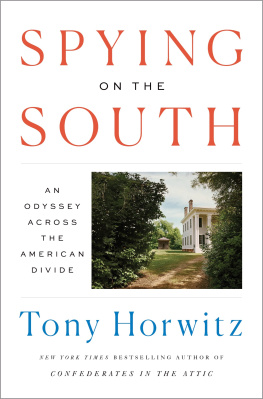



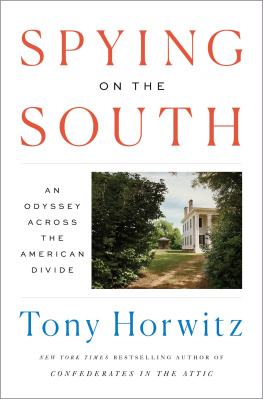

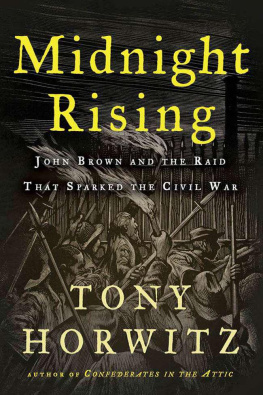

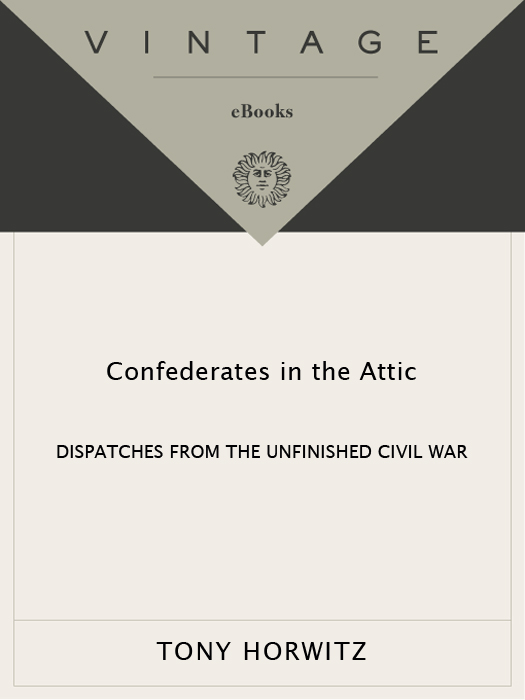


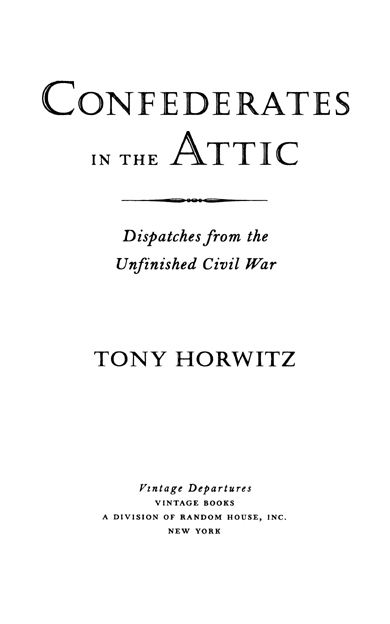
 FIRST VINTAGE DEPARTURES EDITION, MARCH 1999
FIRST VINTAGE DEPARTURES EDITION, MARCH 1999